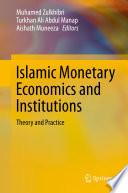
New Religiosities, Modern Capitalism, and Moral Complexities in Southeast Asia
As Southeast Asia experiences unprecedented economic modernization, religious and moral practices are being challenged as never before. From Thai casinos to Singaporean megachurches, from the practitioners of Islamic Finance in Jakarta to Pentecostal Christians in rural Cambodia, this volume discusses the moral complexities that arise when religious and economic developments converge. In the past few decades, Southeast Asia has seen growing religious pluralism and antagonisms as well as the penetration of a market economy and economic liberalism. Providing a multidisciplinary, cross-regional snapshot of a region in the midst of profound change, this text is a key read for scholars of religion, economists, non-governmental organization workers, and think-tankers across the region.
- ISBN 13 : 9811029695
- ISBN 10 : 9789811029691
- Judul : New Religiosities, Modern Capitalism, and Moral Complexities in Southeast Asia
- Pengarang : Juliette Koning, Gwenaël Njoto-Feillard,
- Kategori : Social Science
- Penerbit : Springer
- Bahasa : en
- Tahun : 2017
- Halaman : 293
- Google Book : https://play.google.com/store/books/details?id=J5jZDQAAQBAJ&source=gbs_api
-
Ketersediaan :
... including the most important one, Muhammadiyah, assigned themselves the task of reforming and modernizing Islam, which still bore the traces of its Hindu-Buddhist heritage and mystical traditions, notably from Sufism.









